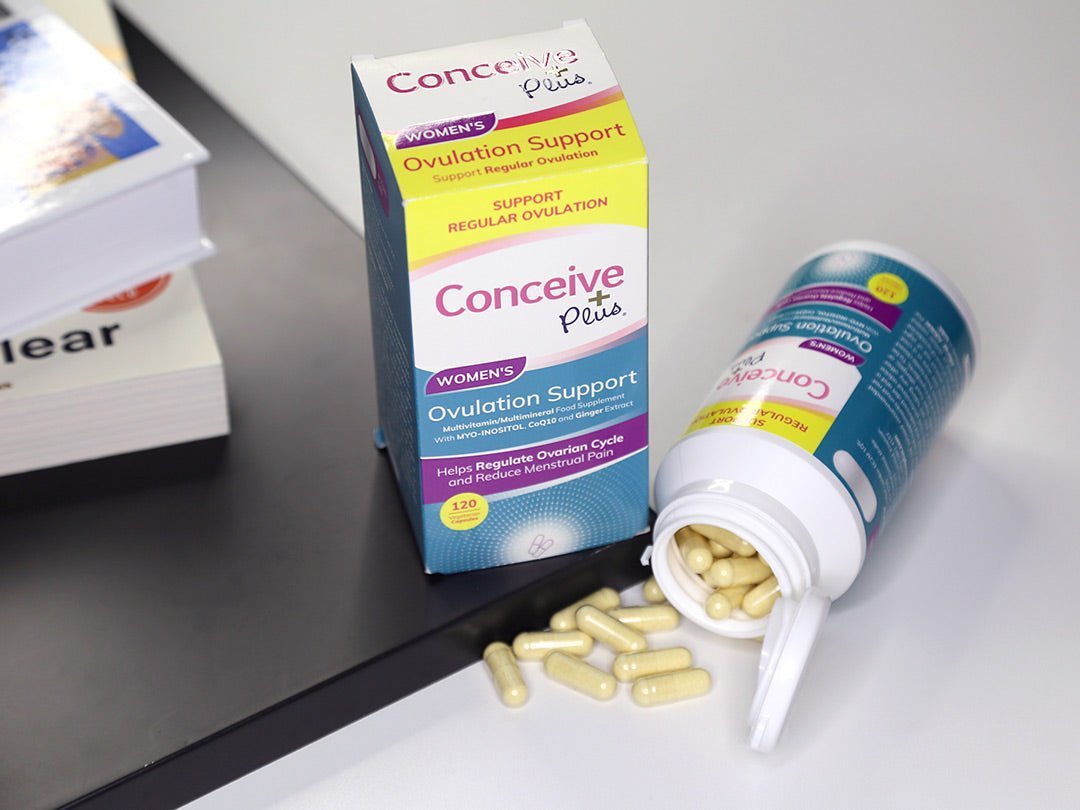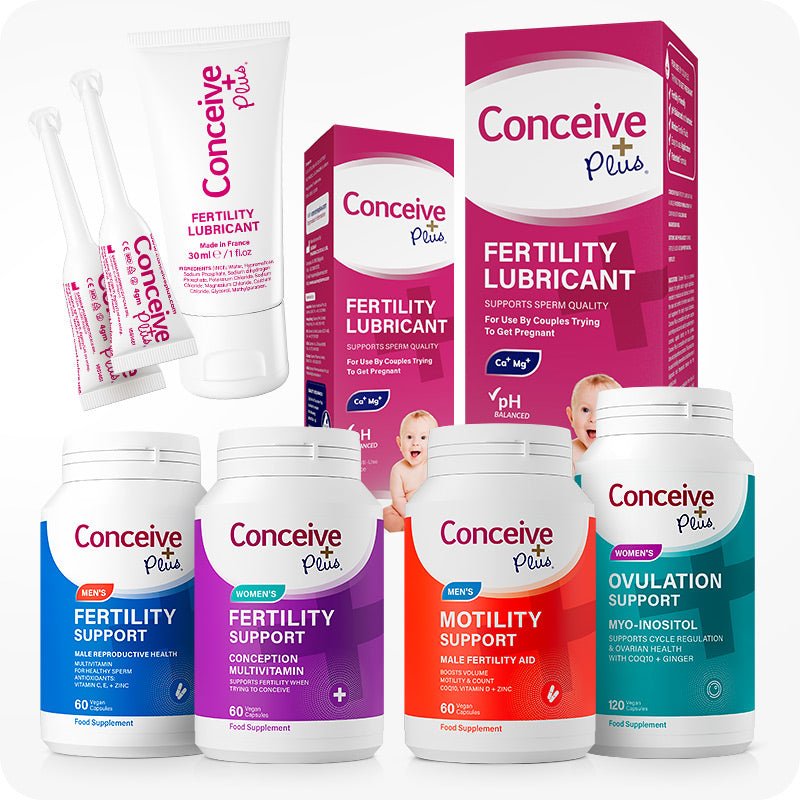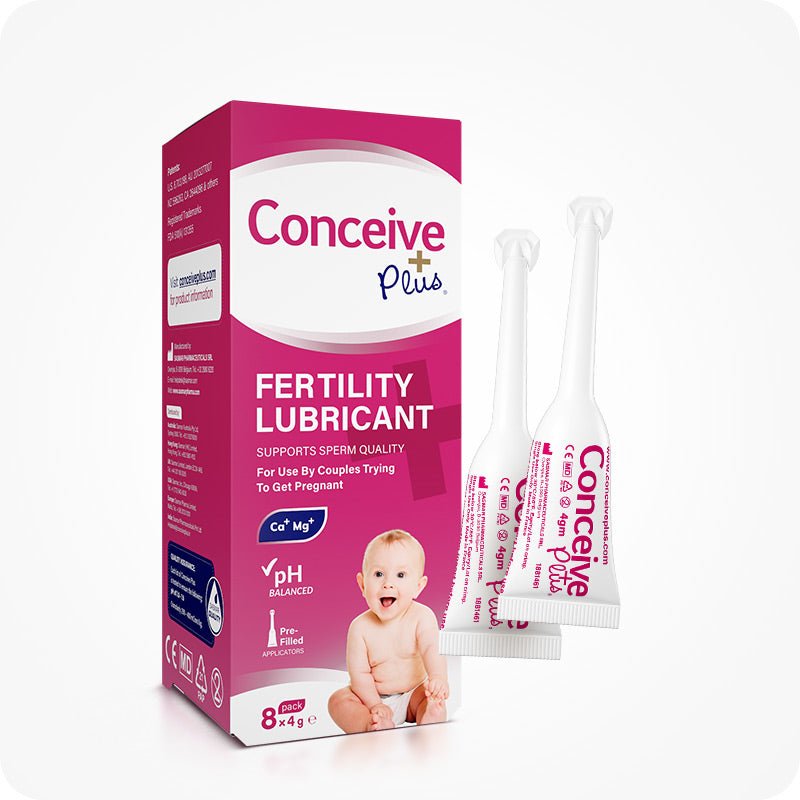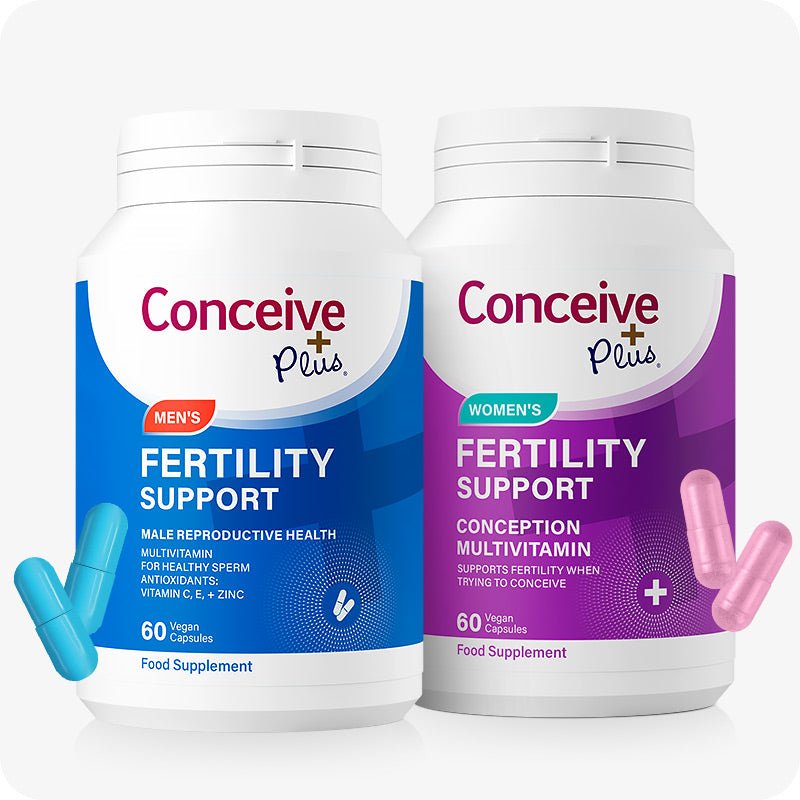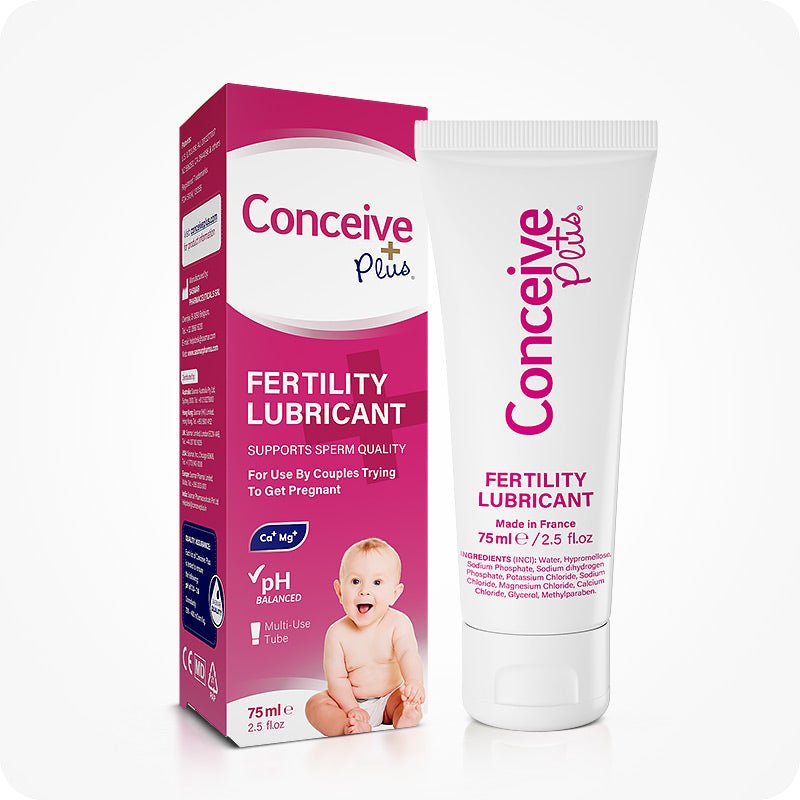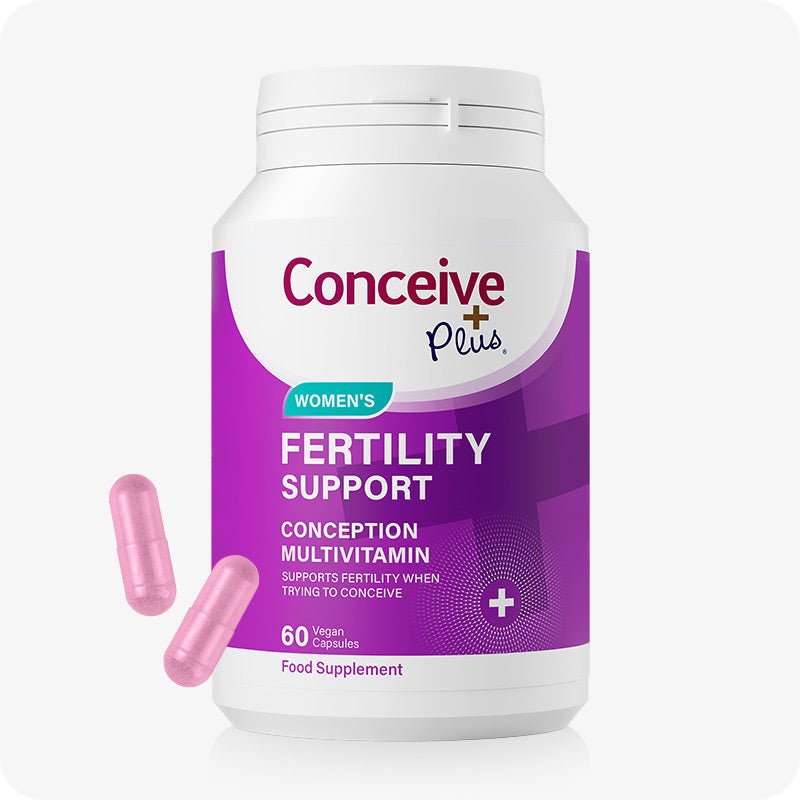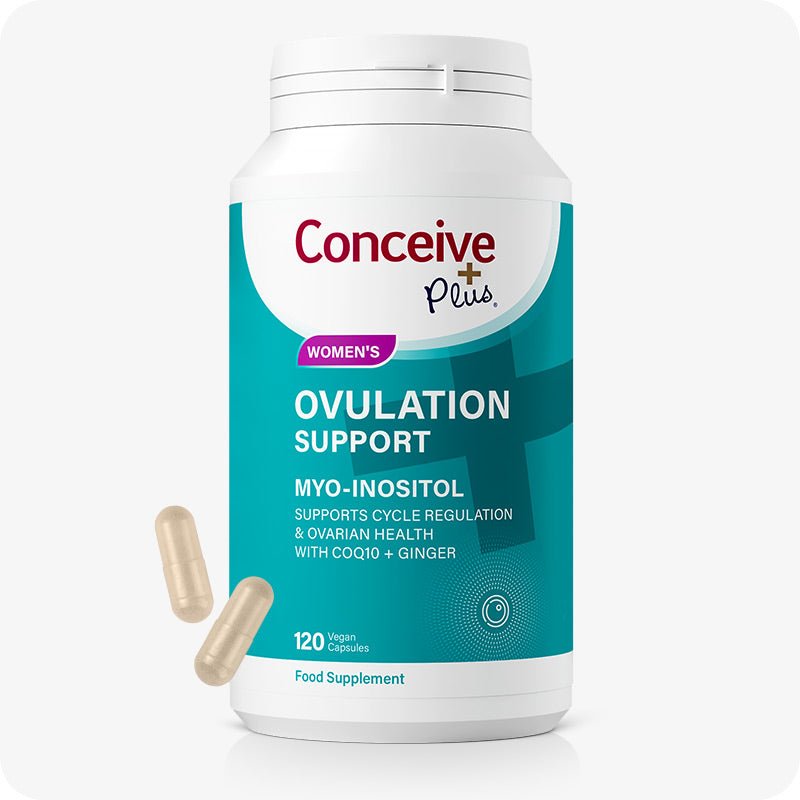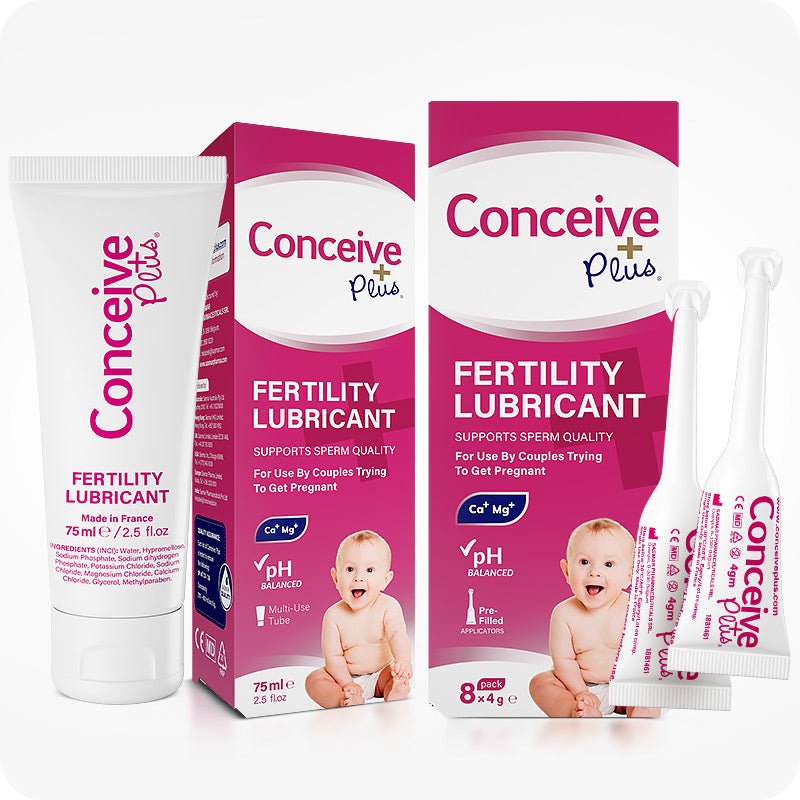How Do Ovulation Tests Work?

Ovulation home test kits are designed to help women identify the time of the month that they ovulate or release an egg for fertilisation. Essentially, ovulation kits can let women know when conception is most likely.
Read on to learn more about how ovulation tests work, when they are best used, and how they can help you get pregnant.
What Is An Ovulation Test?
Ovulation tests are performed to let women know when they will next ovulate and when they are most fertile [1].
The ovulation process is when an ovary releases a mature egg for fertilisation. This phase of the menstrual cycle is also known as a female’s ‘fertile window’ and by having intercourse during the fertile window, couples can conceive a baby.
Ovulation tests are designed to detect a rise in luteinising hormone (LH) [2] in female urine, which is the hormone that signals an ovary to release an egg. Also known as an ovulation check kit, ovulation prediction test, or ovulation test kit, each typically contains ovulation strips or ovulation sticks to test female urine for the presence of LH.
How Do Ovulation Tests Work?
Ovulation test strips work by identifying LH surges in female urine. This makes them an essential tool for understanding ovulation patterns and improving the probability of pregnancy.
A positive ovulation test confirming the presence of LH in a woman’s urine will change colour or show a positive result, depending on the brand used. An increase in LH normally occurs 24-36 hours before ovulation, meaning couples can be prepared to have intercourse and increase their chances of conceiving.
How to Perform An Ovulation Test
Each ovulation test kit typically includes 5-7 test strips. To determine if LH is surging, and ovulation is about to occur, women urinate directly onto the ovulation test strips. Alternatively, the ovulation test strip can be dipped into a container of urine [3].
Generally, women are advised to test for ovulation 3-5 days before the expected ovulation date. For women with a regular menstrual cycle, ovulation normally happens 11-14 days [4] after their last menstruation.
When using an ovulation test test, it’s vital to ensure you follow the instructions carefully to accurately determine ovulation and fertile window.
Women with shorter cycles, or irregular menstrual cycles, should adjust their testing schedule accordingly. Speaking with a doctor or fertility specialist will help highlight how they can adjust ovulation tests according to their cycle.
Are There Benefits to Using Ovulation Tests for a Few Months?
There are indeed. Once an egg is released it only lives for 12-24 hours. Therefore, one positive ovulation test would indicate that a woman’s fertile window is open for at least 24-36 hours.
However, sperm can survive in the female reproductive tract for 3-5 days and monthly ovulation tests can help couples to take advantage of this extended fertile window.
Essentially, using ovulation tests for a few consecutive months can help women recognise their monthly ovulation pattern. By being aware of the monthly ovulation pattern, couples can extend their fertile window from 12-24 hours to 3-5 days. In addition to ovulation tests, monitoring your basal body temp and ovulation patterns can further enhance your understanding of your fertility window.
For example, when a couple determines that ovulation regularly occurs on day 14 of the menstrual cycle, any sperm that enters the female reproductive tract in the 3-4 days before ovulation, or on the day of ovulation, could fertilise the recently released egg.
This extension of the fertile window can significantly increase a couple's chances of conceiving. In addition to using ovulation kits, incorporating a fertility supplements rich in nutrients such as folate, zinc, and CoQ10 can support hormonal balance and optimise fertility, increasing the chances of conception.
For Optimal Results With Ovulation Tests: Tips to Consider
For the most accurate results from an ovulation test, fertility specialists advise that it’s best not to drink large amounts before testing. Consuming an excessive amount of fluids before testing for ovulation can dilute your urine and hinder the accuracy of the results.
Certain medications are also known to affect the accuracy of an ovulation kit. A drug called Clomid (clomiphene citrate), which is taken to increase LH levels and stimulate ovulation can affect the results of ovulation tests.
As can taking estrogen and/or progesterone to improve hormone imbalances and regular menstrual cycles.
Understanding the Results Of Ovulation Kits
A positive ovulation test indicates that a surge in LH has been detected. Therefore, an ovulation kit positive result typically suggests that a woman is expected to ovulate within 24 to 36 hours.
Can An Ovulation Test Determine Pregnancy?
In general, ovulation tests are intended to predict ovulation and are not designed to detect pregnancy. Perhaps a more accurate question is: can ovulation test show pregnancy if it detects elevated levels of certain hormones?
An ovulation test could detect a significantly high amount of LH or other hormones that could indicate pregnancy. In these cases, a pregnancy test is still recommended for confirmation.
Where Can You Buy The Best Ovulation Test in the UK?
Various brands of ovulation kits are available in the UK, however, according to feedback and reviews, the most popular choices are Clear Blue Ovulation Test and Boots Ovulation Test.
Are There Any Risks Associated with Ovulation Kits?
Not really. The only risk associated with ovulation tests is that they can sometimes erroneously indicate an LH surge or not detect a real LH surge. This typically has nothing to do with the type of brand used. Even when using the most popular ovulation test Boots UK or Clear Blue ovulation test, results may not always be accurate.
If ovulation tests are unable to detect an LH surge after several months, or if you’re not getting pregnant despite having unprotected sex, consider consulting with a fertility specialist for evaluation and advice.
Conclusion
Using an ovulation home test kit to identify your fertile window can significantly enhance your chances of getting pregnant. By detecting LH surges, ovulation tests can help women recognise when they are about to ovulate and allow them to plan for intercourse to conceive.
Ovulation tests are easy to use at home and provide accurate results the majority of the time. If you are planning to start a family, have fertility issues, or find it challenging to conceive after months of trying, using an ovulation test can help you determine when you are fertile and improve your chances of conceiving.
References
- Mayo Clinic Health System - Using Ovulation Tools to Predict Fertility - https://www.mayoclinichealthsystem.org/hometown-health/speaking-of-health/using-ovulation-kits-to-predict-fertility
- Cleveland Clinic - Luteinizing Hormone - https://my.clevelandclinic.org/health/body/22255-luteinizing-hormone
- WebMD - How to Use An Ovulation Test Kit - https://www.webmd.com/baby/how-to-use-an-ovulation-test
- American Pregnancy Association - What is Ovulation? - https://americanpregnancy.org/getting-pregnant/infertility/understanding-ovulation/






